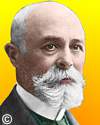
On 25 Aug 1908, Henri Becquerel died, the French physicist who discovered radioactivity in fluorescent salts of uranium. He shared the 1903 Nobel Prize for Physics for his work. His early researches were in optics.
In 1896, in a drawer, he had stored for a few days a photographic plate wrapped in black paper. Upon it, he had left some uranium mineral crystals. Later, he developed the plate and found was fogged. The crystals, long out of sunlight, could not fluoresce, yet he accidentally discovered the salt was a source of a penetrating radiation: radioactivity. Three years later he showed the rays were charged particles by their deflection in a magnetic field. Initially, the rays emitted by radioactive substances were named after him.
A contemporary account was written for the lay reader in “Radio-Activity A New Property of Matter” from Harper's Magazine (1902). From this, you can perhaps place yourself back in time over a century ago, when the world was excited not only by the discovery of radioactivity, but also X-rays. Illustrations include pictures of the images produced in Becquerel's first two experiments.

On 25 Aug 1867, Michael Faraday died. He is perhaps most remembered by those taking science classes for his discovery of electromagnetic induction. But he did so much more—Faraday is one of the most significant figures in experimental physical science. He was beloved by those who attended his public lectures, where he was a popularizer of science to the common people. The Evening Discourses he initiated are continued at the Royal Institution into the present, as a series of Faraday Lectures are held every Christmas, entrancing the children in the lecture theatre - the same one where Faraday stood - and the wider television audience.
Today's book pick is: The Electric Life of Michael Faraday, by Alan W. Hirshfeld. You may find this biography so compelling and inspiring that you'll perhaps find tears in your eyes as you reach the last pages, about his funeral, at the end of such a productive life. This is a scientist everyone should know as a person.
It is available from Amazon, typically about New from $69.99. Used from $8.82. (As of earlier time of writing - subject to change.)
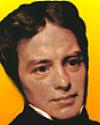 | I am busy just now again on Electro-Magnetism and think I have got hold of a good thing but can't say; it may be a weed instead of a fish that after all my labour I may at last pull up. |
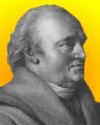 | I have tried to improve telescopes and practiced continually to see with them. These instruments have play'd me so many tricks that I have at last found them out in many of their humours. |
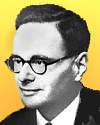 | What, then, is it in particular that can be learned from teachers of special distinction? Above all, what they teach is high standards. We measure everything, including ourselves, by comparisons; and in the absence of someone with outstanding ability there is a risk that we easily come to believe that we are excellent and much better than the next man. Mediocre people may appear big to themselves (and to others) if they are surrounded by small circumstances. By the same token, big people feel dwarfed in the company of giants, and this is a most useful feeling. So what the giants of science teach us is to see ourselves modestly and not to overrate ourselves. |
| Before you look at today's web page, see if you can answer some of these questions about the events that happened on this day. Some of the names are very familiar. Others will likely stump you. Tickle your curiosity with these questions, then check your answers on today's web page. | |
| Births | |
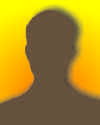 | Frederick Chapman Robbins, Sir Hans Adolf Krebs and Theodor Kocher were each born on 25 Aug, though in different years. Not necessarily in the same order, they were notable for: discovery of the basic system for the essential pathway of oxidation process within the cell; investigation of the thyroid gland; cultivating poliomyelitis virus in tissue cultures. Can you match each scientist to his claim to fame? |
| Deaths | |
 | A French physicist (1852-1908) discovered radioactivity through his investigations of uranium and other substances. In 1903 he shared the Nobel Prize for Physics with Pierre and Marie Curie Can you name this man? |
 | Sir William Herschel (1738-1822) was a German-born English astronomer, the founder of sidereal astronomy for the systematic observation of the heavens. He discovered a new planet. Can you name the planet he discovered? |
 | An English chemist, physicist and inventor (1791-1867), published pioneering papers that led to the practical use of electricity, an is remembered for giving popular public lectures. Can you name this person? |
| Events | |
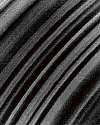 | On 25 Aug in 1981, the U.S. spacecraft Voyager II came within 63,000 miles of Saturn's cloud cover, sending back pictures of, and data about, the ringed planet; in its closest approach to Saturn, showing many rings. Is the number of Saturn's rings counted in tens, hundreds, thousands, or more? |
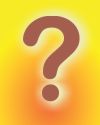 | On 25 Aug of a certain year, the first scan was made using CAT (Computer Assisted Tomography). In what decade was this CAT scan made? |
Fast answers for the previous newsletter for August 24: Albert Claude = cytologist; Rudolf Geiger = microclimatology; Sir Daniel Gooch = laid the first Atlantic Cable • Troy • Rudolf Clausius • French • Vesuvius • decade of 1968 • Amelia Earhart.
 If you enjoy this newsletter, the website, or wish to offer encouragement or ideas, please send feedback by using your mail reader Reply button.
If you enjoy this newsletter, the website, or wish to offer encouragement or ideas, please send feedback by using your mail reader Reply button. Your click on a Facebook, StumbleUpon, or other social button on the site webpages is also a welcome sign of appreciation. Thank you for using them.
© This newsletter is copyright 2020 by todayinsci.com. Please respect the Webmaster's wishes and do not put copies online of the Newsletter — or any Today in Science History webpage. (If you already have done so, please remove them. Thank you.) Offline use in education is encouraged such as a printout on a bulletin board, or projected for classroom viewing. Online, descriptive links to our pages are welcomed, as these will provide a reader with the most recent revisions, additions and/or corrections of a webpage. For any other copyright questions, please contact the Webmaster by using your mail reader Reply button.
--
If you do not want to receive any more newsletters, Unsubscribe
To update your preferences and to unsubscribe visit this link
Executive Real Estate Business Class
-
"It was like a man with wings. It wasn't like anything you'd see on TV or in a monster movie." ...
About the publisher
Search This Blog
Blog Archive
-
▼
2020
(1542)
-
▼
August
(192)
- HISTORY: Lessons from the latest March on Washington
- New This Week on History News Network
- Discover lost cities with Nat Geo History. Subscri...
- On This Day for August 31 - Confederates evacuated...
- Newsletter for Monday 31 August.
- Face Masks Make you dumb (compliant) Economic des...
- August 31: Malaya Gains independence, Princess Dia...
- FAMILY: How to get your kid to wear a mask
- Roman numerals | Ancient empires | The battle of C...
- On This Day for August 30 - Historic spaceflight b...
- Newsletter for Sunday 30 August.
- August 30: Crossbow Outlawed, Nehru Requests Indep...
- The Compass: London
- On This Day for August 29 - New Orleans hit by Hur...
- Newsletter for Saturday 29 August.
- August 29: Treaty of Nanking, Second Battle of Bul...
- CORONAVIRUS UPDATE: These promising treatments are...
- PHOTOGRAPHY: Lives that matter, from the pietà to ...
- The Horrifying True Story Behind "Candyman," The Y...
- The Roundup Top Ten from History News Network
- On This Day for August 28 - Civil rights march on ...
- Newsletter for Friday 28 August.
- August 28: Tom Thumb Races a Horse, Scientific Ame...
- ANIMALS: When baby wombats become your roommates
- Give your kids the world! Subscribe now.
- Create remote resiliency with Britannica Kids
- On This Day for August 27 - The death of Titian, M...
- Newsletter for Thursday 27 August.
- Lockdown for you but not for the politically corre...
- August 27: Krakatoa Erupts and the End of Lord Mou...
- YOUR WEEKLY ESCAPE: Inside the world of transhuman...
- SCIENCE: Behind the hurricanes, wildfires, and bla...
- Demystified: What Does Gaslighting Mean?
- The Latest News from History News Network
- On This Day for August 26 - Joan of Arc's arrival ...
- Newsletter for Wednesday 26 August.
- Fear fatigue is more dangerous than COVID-19 plus
- August 26: Longbows, Cannons and Morris Mini-Minors
- For Your Eyes Only: America’s Spying Secrets
- 50+ Vintage Pictures Of Your Parents Being Cooler ...
- TRAVEL: Waiting for a silver lining
- On This Day for August 25 - Paris liberated, Sean ...
- Newsletter for Tuesday 25 August.
- August 25: French Arrive in Louisiana, James Cook ...
- HISTORY: Why the U.S. Postal Service matters
- Even Life-Long Learners Need Back-to-School Savings!
- Experience a 360-degree virtual tour of the Nat Ge...
- New This Week From History News Network
- On This Day for August 24 - Eruption of Mount Vesu...
- Newsletter for Monday 24 August.
- GeoEngineering Massive Drought WildFires + More Ma...
- August 24: Alaric I Sacks Rome, British Capture Wa...
- FAMILY: How you can support your kid's teachers—an...
- Genghis Khan | Edward the Confessor | The Spanish ...
- On This Day for August 23 - William Wallace execut...
- Newsletter for Sunday 23 August.
- August 23: 1st US Women's Rights Convention, Bin L...
- The Compass: U.S. National Parks
- On This Day for August 22 - Wars of the Roses ende...
- Newsletter for Saturday 22 August.
- August 22: Wars of the Roses Ends, Chennai Founded...
- CORONAVIRUS UPDATE: Your employer could require yo...
- PHOTOGRAPHY: Capturing a muted Russia
- The Unsung Heroes Who Fought For Women's Voting Ri...
- The Roundup Top Ten from History News Network
- On This Day for August 21 - French defeated at the...
- Newsletter for Friday 21 August.
- YOUR WEEKLY ESCAPE: A million people live in under...
- August 21: Mona Lisa is Stolen, the 50th US State ...
- ANIMALS: Soft and virus-y, the mink with COVID-19
- On This Day for August 20 - Viking 1 launched, Eer...
- Total Exposé! Watch the 2nd Plandemic Movie "InDoc...
- Newsletter for Thursday 20 August.
- August 20: The Dutch East India Company, Sun Yat-s...
- A Champion Will Be Crowned on 'Forged in Fire' Ton...
- SCIENCE: The robots have arrived
- The Latest News from History News Network
- On This Day for August 19 - Attempted coup against...
- Newsletter for Wednesday 19 August.
- August 19: Cease-Fire in the Iran-Iraq War and Gor...
- TRAVEL: Will new tech make flying safer now?
- Sail along with Ancient Explorers w/ Nat Geo History!
- On This Day for August 18 - Nineteenth Amendment r...
- Newsletter for Tuesday 18 August.
- August 18: Wilson's Ill-fated Neutrality, American...
- HISTORY: Breaking 'substantial barriers' with Kama...
- New This Week On History News Network
- On This Day for August 17 - Indonesia's declaratio...
- Newsletter for Monday 17 August.
- State of Tennessee orders Home visit checks on ALL...
- August 17: Division of Korea, Indonesian Independe...
- FAMILY: Preparing for this unusual school year
- Medieval baby names | Attila the Hun | Pederasty i...
- On This Day for August 16 - Leonel Fernández Reyna...
- Newsletter for Sunday 16 August.
- August 16: Deadly Chaos in Calcutta and the Last C...
- The Compass: New Zealand
- On This Day for August 15 - Independence for India...
- Newsletter for Saturday 15 August.
- August 15: The Mayflower Sets Sail, Indian Indepen...
-
▼
August
(192)
-
Blogroll
-
About
HistoryFact










0 comments:
Post a Comment